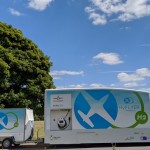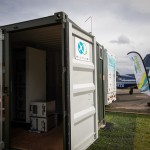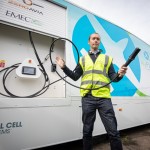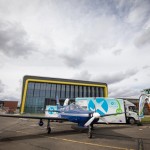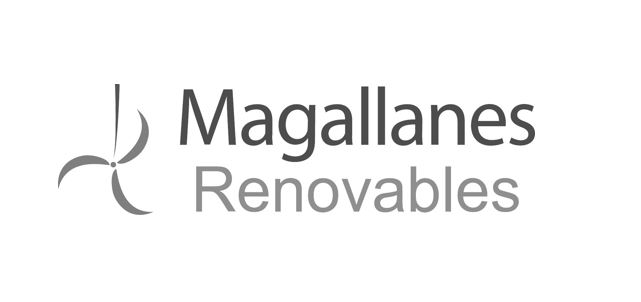HyFlyer projects
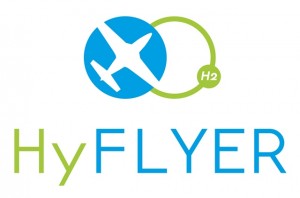
Project: HyFlyer II
Project Overview:
The HyFlyer II project will see ZeroAvia develop the first certifiable hydrogen-electric powertrain that can power airframes carrying up to 19 passengers. This builds on developments in the first HyFlyer project which saw the world’s first flight of a commercial-grade hydrogen-electric aircraft at Cranfield in September, utilising a smaller version of ZeroAvia’s hydrogen fuel cell powertrain in a 6-seat Piper Malibu M350. The project aims to conclude with a world-first hydrogen-electric flight this time in a Dornier 228 testbed aircraft with a 350 mile flight.
EMEC will deliver the green hydrogen fuelling systems required to power the aircraft for flight tests, including its mobile fuelling platform designed to suit an airport environment. Aeristech, a leading developer of power dense and efficient air compressor solutions, will work with ZeroAvia to integrate its advanced air compressor system as part of the new 19-seat powertrain.
Project Partners:

Funders:
- The Department for Business, Energy and Industrial Strategy (BEIS)
- Aerospace Technology Institute
- Innovate UK
Funding: £12.3 million
Videos:
Dornier 228 first flight test
Dornier 228 High speed taxi testing
Ground testing of Dornier 228
Project news:
- Dec 2020: EMEC to fuel ZeroAvia’s 19-seat Hydrogen-Electric Aircraft Ambition
- Jan 2023: HyFlyer first flight test of hydrogen-electric engine
Project: HyFlyer I
Project Overview:
The HyFlyer project aims to decarbonise medium range small passenger aircraft by demonstrating powertrain technology to replace conventional piston engines in propeller aircraft. The conventional powertrain in the aircraft will be replaced with electric motors, hydrogen fuel cells and gas storage.
HyFlyer will demonstrate a phased approach from battery power to hydrogen power, integrating the new technology aboard a Piper M-class six-seater aircraft. The aircraft will perform initial test flights out of Cranfield and culminate in a 250 – 300 nautical mile (NM) A – B demonstration flight.
The project is led by Zeroavia, developers of hydrogen fuel cell powertrain solutions. Project partners Intelligent Energy will optimise its high power fuel cell technology for application in aviation whilst EMEC Hydrogen, producers of green hydrogen from renewable energy, will supply the hydrogen required for flight tests and develop a mobile refuelling platform compatible with the plane.
Project objectives:
- Deliver world’s first fuel cell powertrain for zero-emission aviation
- Prove technology, repowering existing airframes for sub 500 NM aircraft
- Prove aviation maintenance and operations for technology
- Stimulate and the aviation market and service offering for the entrance of this technology
The HyFlyer project is supported by the ATI Programme, a joint Government and industry investment to maintain and grow the UK’s competitive position in civil aerospace design and manufacture. The programme, delivered through a partnership between the Aerospace Technology Institute (ATI), Department for Business, Energy & Industrial Strategy (BEIS) and Innovate UK, addresses technology, capability and supply chain challenges.
Project partners:

Funders:

Project news:
- November 2020: EMEC mobile hydrogen refuelling solution to power aviation world first
- September 2020: HyFlyer project achieves world-first hydrogen electric flight
- June 2020: HyFlyer progress – ZeroAvia conductions UK’s first commercial-scale electric flight
- Dec 2019: EMEC Award HyFLYER Hydrogen Refuelling Contract to Fuel Cell Systems
- Sept 2019: HyFLYER Zero-Emission Aircraft Flight Tests set for Orkney
Flight footage:
Webinars:
EMEC Hydrogen Webinar | Decarbonising Lifeline Services in Orkney using Hydrogen
ZeroAvia Virtual Summit | Path to Clean Aviation in a New World

